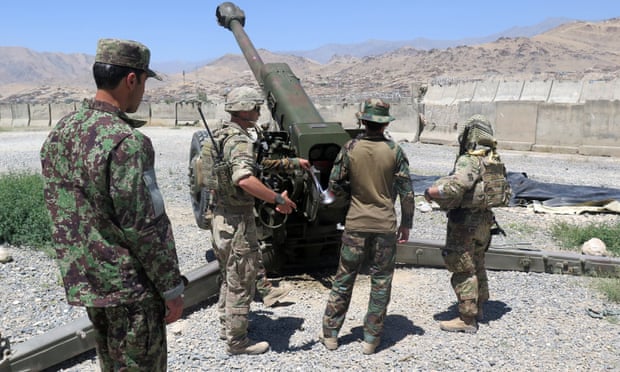Michael H Fuchs
As the country’s longest war continues, it is sapping resources and focus while the list of far more serious national security threats continues to grow.
A child born on this date in 2001 – just before the terrorist attacks of 9/11 – is old enough to be fighting today in the war in Afghanistan.
This week – almost 17 years after the war began – the Taliban attacked Ghazni, killing more than 100 Afghan army soldiers. The Taliban also overran a base, where they killed another 17 soldiers.
It’s not hard to imagine that some of the fighters on both sides of this week’s battles – those fighting for the Afghan army and the Taliban – were not yet born on 9/11.
As America’s longest war continues in Afghanistan, it is sapping America’s resources and strategic focus while the list of far more serious national security threats – from climate change to the rise of China – continues to grow. It is time to find a way to wind down America’s war in Afghanistan, one way or another.
The United States remains stuck in strategic limbo in Afghanistan. No matter how many allied forces deploy to Afghanistan, there is no victory to be had on the battlefield. But Afghanistan is where the 9/11 attacks were planned. This is a fact that imprisons US presidents and policymakers – imagine being the president who withdrew US troops from Afghanistan, only to then suffer another terrorist attack on US soil planned in Afghanistan. There is no good option.
And so, America fights. As the reporter CJ Chivers describes America’s current policies in Afghanistan: “They continue today without an end in sight, reauthorized in Pentagon budgets almost as if distant war is a presumed government action.”
While the US and its allies continue to send young men and women to fight and die, certain facts remain constant: the Taliban are not going anywhere. Terrorists are not going anywhere – 17 years later, the Islamic State has joined al-Qaida as a threat. The Afghan state will not achieve a level of “stability” that will put American policymakers at ease in the foreseeable future. Pakistan will not change its two-sided policy of working with the US in Afghanistan with one hand while quietly enabling the Taliban with the other. As these facts remain unchanged, the war continues to blight the daily lives of Afghans, who have been at war on and off for almost 40 years now. There is no telling when this horrific cycle of war and violence will end for them. But it also seems clear that the US cannot end it with the military alone.
In welcome news, the US recently began direct talks with the Taliban. The United States engaged in direct negotiations with the Taliban during the Obama administration, but those talks produced little. There has long been a debate over whether to talk to the Taliban, but there will be no end to the war without some sort of political agreement that includes the Taliban. A ceasefire in June this year signaled that this time could be different, and the United States must urgently press forward with these diplomatic negotiations to end the war.
It’s also important to keep in mind that the United States is not the only player interested in stability and with leverage to wield. China, Russia, Iran and India are all heavily invested in the outcome of the war, and despite very divergent strategies and views of the war, all have an interest in preventing Afghanistan from once again becoming a safe haven for terrorists and a source of regional instability. They must be forced to put skin in the game in a diplomatic process to urgently end the war or be forced to deal with the consequences when America withdraws.
While America must seize this new potential diplomatic opportunity with the Taliban, regardless of where the diplomacy leads, America’s role in the war must begin to come to an end. Right now, America is attempting to prevent potential terrorist attacks from one country by sacrificing the lives of American soldiers, with no strategy to end the threat other than a perpetual war. That hardly seems sensible.
Most importantly, American leaders must remember that the war in Afghanistan takes place in a much larger strategic context for the United States. A US withdrawal – with or without a negotiated end to the war – could lead to more instability in Afghanistan. But how does that compare with the alternative? Afghanistan – along with Iraq – has shaped the way an entire generation in America thinks about its country’s role in the world. The threats posed by Afghanistan today rank nowhere close to the top of America’s national security concerns, dwarfed by challenges like climate change, Russia, China and the erosion of liberal democracy abroad.
The forever war fatigue runs a very real risk of draining support in the United States for a robust American role in the world, which is necessary to tackle any of these threats. And that would truly devastate American national security. Donald Trump’s “America First” policies – and the damage they are inflicting – are already a symptom of this national frustration with America’s seemingly unending wars.
Inertia and fear of the unknown are not good enough reasons to fight a war. It’s time for America to end its war in Afghanistan.


No comments:
Post a Comment